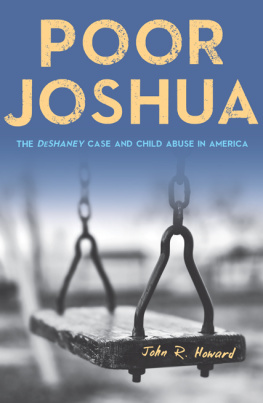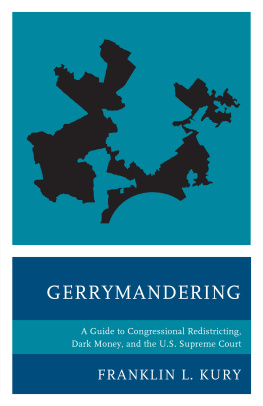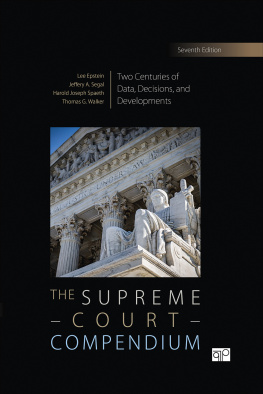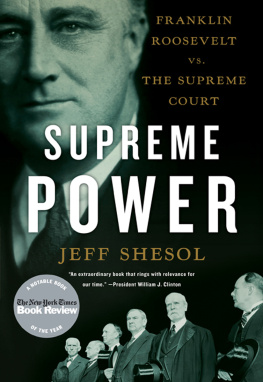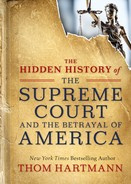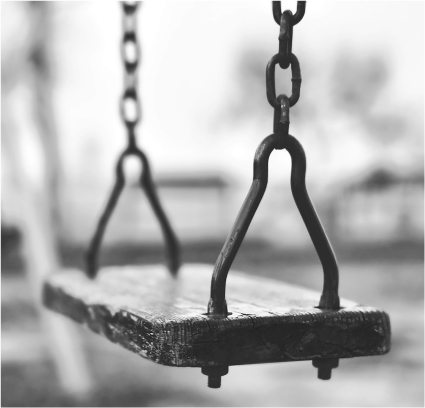POOR
JOSHUA
POOR
JOSHUA
THE DESHANEY CASE AND CHILD ABUSE IN AMERICA
John R. Howard
Published by State University of New York Press, Albany
2018 State University of New York
All rights reserved
Printed in the United States of America
No part of this book may be used or reproduced in any manner whatsoever without written permission. No part of this book may be stored in a retrieval system or transmitted in any form or by any means including electronic, electrostatic, magnetic tape, mechanical, photocopying, recording, or otherwise without the prior permission in writing of the publisher.
For information, contact State University of New York Press, Albany, NY
www.sunypress.edu
Library of Congress Cataloging-in-Publication Data
Names: Howard, John R., 1933 author.
Title: Poor Joshua : the DeShaney case and child abuse in America / John R. Howard
Description: Albany : State University of New York Press, 2018. | Appendix: DeShaney v. Winnebago County Department of Social Services, 489 U.S., 189 (1989). | Includes bibliographical references and index.
Identifiers: LCCN 2017038440 | ISBN 9781438470498 (hardcover : alk. paper) | ISBN 9781438470504 (ebook)
Subjects: LCSH: DeShaney, Joshua, 1979Trials, litigation, etc. | DeShaney, MelodyTrials, litigation, etc. | Winnebago County (Wis.). Department of Social ServicesTrials, litigation, etc. | Child abuseLaw and legislationUnited StatesCases. | Social serviceMalpracticeUnited StatesCases. | Government liabilityUnited StatesCases.
Classification: LCC KF228.D464 H69 2018 | DDC 345.73/025554dc23
LC record available at https://lccn.loc.gov/2017038440
10 9 8 7 6 5 4 3 2 1
CONTENTS
Poor Joshua It is a sad commentary on American life
that this child and his mother are denied
the opportunity to have the facts of their case considered
Justice Harry Blackmun, in his dissenting opinion,
DeShaney v. Winnebago County Department of Social Services
ACKNOWLEDGMENTS
In the course of doing research for Poor Joshua , I met with Judge John Reynolds, who wrote the first decision in DeShaney. I also interviewed Donald Sullivan and Curry First, the attorneys who carried Joshuas cause to the Supreme Court. I owe all three more than words can express for their candor, their intellect, their passion, and their insights. The interviews were conducted several years after the Supreme Court decision was handed down, the passage of time allowing the three men to reflect even more deeply on the meaning of the case and their involvement in it. This book has been completed years after the interviews, allowing me to draw on a wider array of resources in analyzing the decision and exploring its social consequences. I also want to thank the librarians at the National Archives and the Supreme Court Library for their assistance in making available files that allowed for a day-to-day recounting of DeShaney s tragic events, and Purchase College for providing a grant that afforded an opportunity to journey to Wisconsin and visit the places where many of the events in the case unfolded. Finally, I owe a debt of gratitude to Karen Leahy, Leigh Howard, Robert Smith, Joseph Fashing, Barrington Wright, and Douglas Sheff, who read various versions of the manuscript and provided valuable suggestions as to how to make it better.
PART ONE
JOURNEY TO A DISTANT LAND
CHAPTER ONE
AN AMERICAN STORY
This Is How It Began
January 22, 1983
In emergency rooms, the week has a rhythm as predictable as the oceans tides. On Friday night a wave begins to wash in: the knife wounds, the busted noses, the fractured ribs. And then around three a.m., Saturday morning, the tide recedes as the bars close, the parties end, and the bruised but not broken make their way home. But by Saturday night a stronger, more furious tide sweeps in and crests in the hours around midnight with the gunshot wounds, the slashed faces, the mangled limbs, and the cracked skulls. And then, again, the tide recedes as Saturday night turns into Sunday morning and the kitchen fights end, the barroom brawlers pass out, and the drunk drivers reach home, jail, the hospital, or the morgue. By Monday, the wreckage has swept through the emergency room to other wards, and a relative calm returns. The weekends carpeted battlefield gives way to the single body in distress. The crowded waiting room gives way to the huddled relatives waiting in fearful silence to hear news of the heart attack victim, the breadwinner monstrously injured on the job, the badly damaged child.
Marie DeShaney brought the three-year-old into the Theda Clark Medical Center emergency room early Saturday afternoon during a lull in the weekends drama. He had been playing, she claimed, and had accidentally been struck across the forehead with a metal truck by a two-year-old playmate. His name was Joshua DeShaney and she was his caretaker. His father was away ice fishing. The three-inch-long bruise on the boys forehead was clearly evident to the doctor, Robert Gehringer, but there was also a blue bruise on Joshuas right cheek, an abrasion on the back of his head, and a bruise the size of a half dollar on the left side of his scalp.
An emergency room nurse placed a call to Thomas Hoare, a medical social worker on duty that afternoon. Unlikely accidents, unexplained injuries, the scars and bruises of old injuries on children brought in for treatment triggered suspicion. The parent or the guardian always had an innocent explanation, but the law mandated that inquiry be made. The nurse indicated to me that they had a child there who was approximately three years old and they suspected that the child had been physically abused, Hoare later recounted; there were a number of bruises on the child and the child was brought in by an aunt.
He went down to the emergency room, and after taking a look at Joshua spoke with Gehringer and with Marie. The doctors view was unequivocal. The boy had multiple contusions and there was no satisfactory explanation. He believed that this might be a case of child abuse and recommended that Joshua be admitted to the hospital.
Hoares craft often took him into the netherworld of an uncertain reality. At first glance, the evidence of abuse was rarely unequivocal. The unlikely injury could have an innocent explanation. Bizarre accidents do occur. But, on the other hand, the law demanded that the uncertainties attending possible abuse be resolved, that the authorities make an effort to determine where responsibility lay when confronted with an injured child and an improbable story, or no story at all. He was no stranger to this shadow world. He had taken in-service training courses on child abuse and child neglect detection and had come face-to-face over the years with the grim realities of child abuse. He had also given talks on the matter, seeking to increase public awareness of a problem that played out behind closed doors, away from witnesses, with victims seldom able to give voice to their hurt.
Ordinarily, an adult bringing a child to an emergency room has a right to take the child home following treatment, except for those occasions when emergency room medical staff become concerned that returning home might not be in the childs best interest. Joshua had recent injuries and showed signs of possible past abuse. It was not clear, however, that Marie could be compelled to leave the boy in the hospitals custody. The hospital would need a court order granting it temporary custody to admit him, or the permission of the parent, but the boys father was not available to give permission. If Joshua were to remain in the hospital, the machinery necessary to turn suspicion into intervention had to be quickly put in motion.

